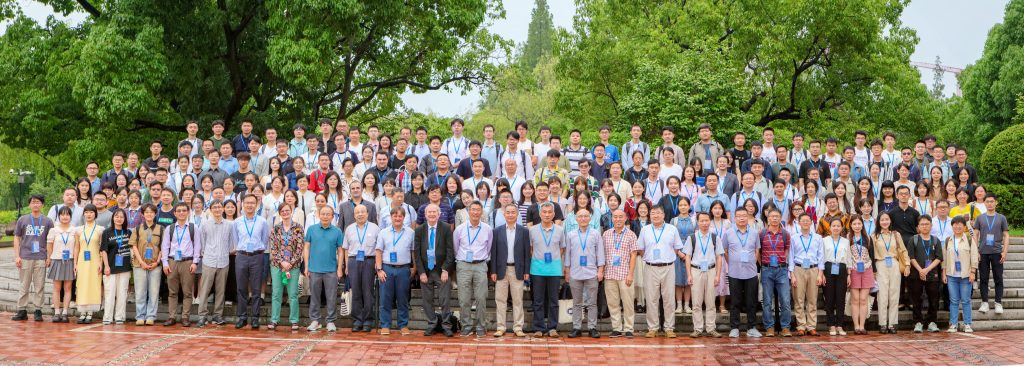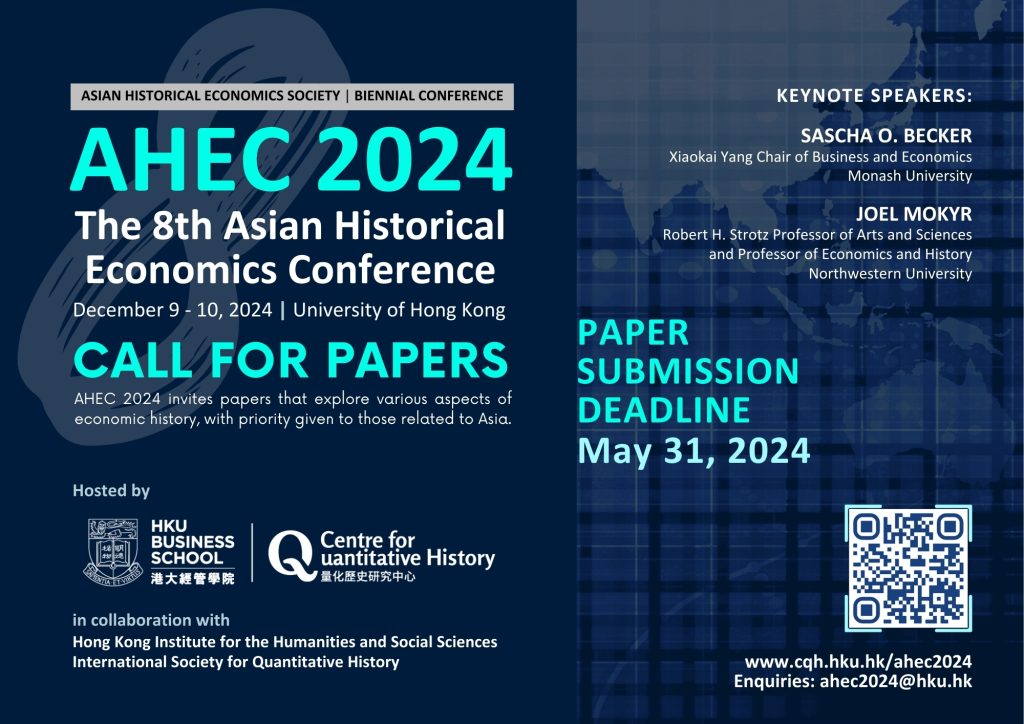
Biography
Zhiwu Chen is Chair and Cheng Yu-Tung Professor in Finance at the University of Hong Kong (HKU). Professor Chen currently serves as director of both Hong Kong Institute for Humanities and Social Sciences (HKIHSS) and Centre for Quantitative History (CQH). His research covers finance theory, the sociology of finance, economic history, quantitative history, emerging markets, as well as China’s economy and capital markets. Professor Chen was a former Professor of Finance at Yale University (1999-2017) and a Special-Term Visiting Professor at Peking University (School of Economics) and Tsinghua University (School of Social Sciences).
Professor Chen started his career by publishing research papers in top economics and finance journals on topics related to financial markets and theories of asset pricing. Around 2001, he began to expand research beyond mature markets by investigating market development and institution-building issues in the context of China’s transition process and other emerging markets. He successfully led efforts to construct historical financial and social databases from China’s historical archives and has written on economic/social history topics. In 2013, he started the annual Summer School for Quantitative History cum International Symposium on Quantitative History at Tsinghua University and continues to organize them at Peking University, with the goal of promoting quantitative historical research in China and beyond. In 2022, Professor Chen’s Quantitative History of China project was awarded HK$67.32 million (over US$8.5 million) under the Areas of Excellence (AoE) Scheme, marking a new record high for government funding raised for the HKU Business School since its establishment.
Professor Chen has been a member of the HKU Council since November 2018. He is on the board of directors of Bairong Inc. and GigaCloud Tech. He also served on the International Advisory Board of the China Securities Regulatory Commission (CSRC) (2012-19), the Expert Advisory Board for the formation of the China Investment Corporation (2007), and the board of directors as an independent director at Noah Holdings (2013-24), IDG Energy Investment (2016-18), Bank of Communications (2010-18), PetroChina (2011-17), and Lord Abbett China (2007-15). He was on the Board of Trustees of the Yale-China Association, the 12th and 13th Five-Year Plan Advisory Commission to the Beijing Municipal Government, and the Chief Academic Advisor to two 10-episode CCTV documentary series, “Wall Street” and “Money”. He was a co-founder and partner of Zebra Capital Management from 2001 to 2011. In Burson-Marsteller’s 2012 “G20 Influencers” report, Professor Chen was listed as one of the top ten political influencers in China.
Professor Chen is a frequent contributor to media publications in China on topics of economic policy, market development, institutional reform, and historical research. His work has been widely published and regularly featured in major newspapers and magazines in the United States, Hong Kong, China and many other countries. His Chinese books include: How Is Wealth Created? (2005), Media, Law and Markets (2005), Why are the Chinese Industrious and Yet Not Rich (2008), Irrational Overconfidence (2008), The Logic of Finance (2009), 24 Wealth Lectures (2009), Assessing China’s Economic Growth of the Past 30 Years (2010), On the China Model (2010), The Logic of Finance 2: Path to Individual Freedom (2015), Introduction to Finance (2018) and Introduction to Investment (2019). He has recently published a two-volume long history book in Chinese titled Logic of Civilization, that explores a number of human innovations, including mythology or magic and supernatural beliefs, technologies, social structures, cultural norms, religions, financial markets, and the welfare state. He has received research awards including the Graham and Dodd Award (2013), the Pacesetter Research Award (1999), the Merton Miller Prize (1994), and the Chicago Board Options Exchange Competitive Research Award (1994). He has also received a number of book awards in China and Hong Kong, among which are 23 awards for The Logic of Finance in China and Hong Kong, and the best book award from hexun.com for Why are the Chinese Industrious and Yet Not Rich.
Professor Chen received his PhD in financial economics from Yale University in 1990; MS in systems engineering from Changsha Institute of Technology in 1986; and BS in computer science from Central-South University in 1983. He was Assistant Professor of Finance at University of Wisconsin – Madison (1990-95); Associate Professor of Finance at Ohio State University (1995-99); and Professor of Finance at Yale University. He has been an endowed professor since joining HKU in July 2016. In July 2019, Professor Chen was conferred the title of Chair Professor of Finance in recognition of his contribution to finance.
Related News
Related Publication and Projects

Survival cannibalism persisted across human societies until recently. What drove the decline in cannibalism and other forms of violence? Using data from the 1470–1910 period, this paper documents that in historical China, the Confucian clan—an institutionalized kinship network—acted as an informal internal market to facilitate intra-clan resource pooling and risk-sharing, thus reducing the need for cannibalism during times of drought-related famine. The risk mitigation role of the clan remains robust after controlling for economic development and other factors and ruling out alternative channels. Thus, kinship networks and their associated culture contributed to human civilizational development before the advent of formal markets.
 June 1, 2024
June 1, 2024 Journal Publications
Journal Publications
Volumes of historical archives in China have been digitised, from which various datasets have been constructed for scholarly inquiry. Furthermore, the excavation of thousands of archaeological sites provided detailed data about prehistoric development across China’s landmass. As a result, there has been remarkable progress in quantitative studies on China’s past. This article reviews recent work in five theme areas to provide a background for the papers included in this special issue. These themes include state formation, Confucianism, human capital, Christian missionaries, and long-term persistence studies. The five papers in this issue fall into these themes and are introduced where appropriate.
 June 23, 2024
June 23, 2024 Books And Chapters
Books And Chapters
China’s center of socioeconomic activities was in the North prior to the Tang dynasty but is in the South today. We demonstrate that Arab and Persian Muslim traders triggered that transition when they came to China in the late seventh century, by lifting maritime trade along the South Coast and re-creating the South. Between 742 and 1393 CE, prefectures with better access to maritime trade, or higher porcelain trade participation, experienced significantly higher population growth, but the predictive coefficient weakened substantially after the maritime trade ban of 1371 CE. These findings are robust after controlling for many confounding factors.
 February 10, 2025
February 10, 2025 Journal Publications
Journal Publications





